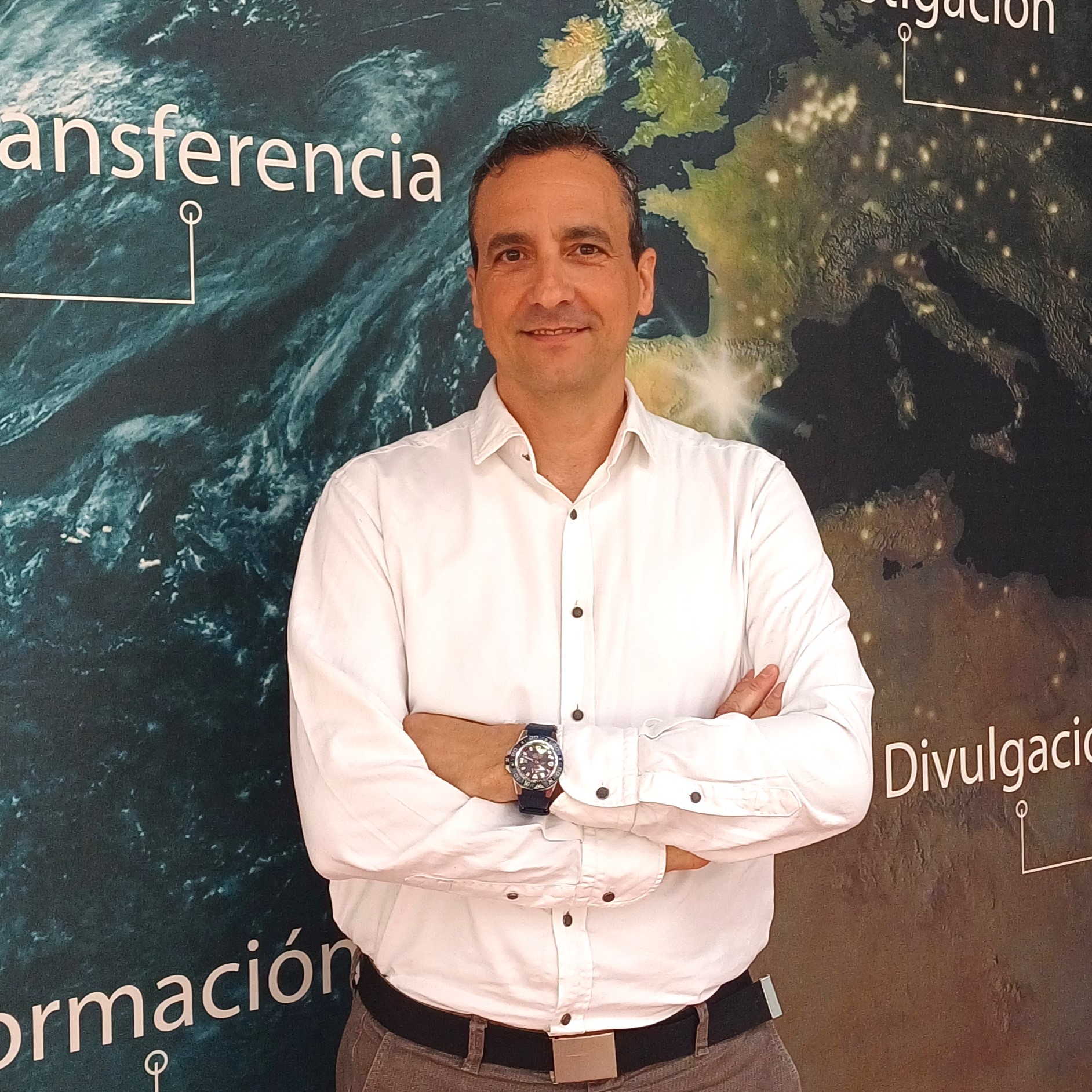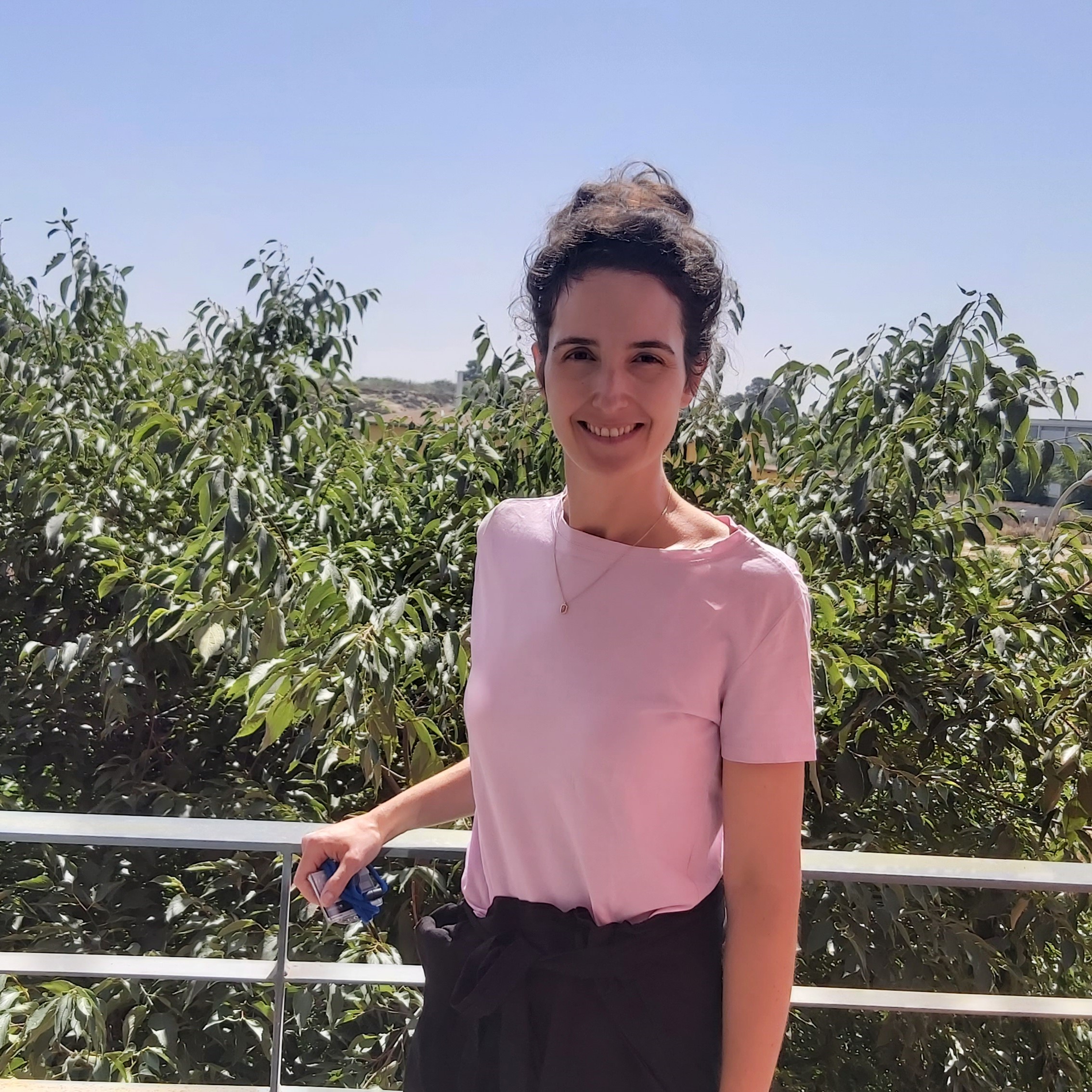
Why did you decide to go into research and was it always clear to you what you wanted to do?
Research is a vocational subject. I have always been attracted by the idea of being at the frontier of knowledge and academia. However, it was not always clear to me what I wanted to do. When I was a child I saw myself working as an astrophysicist, but later during my studies I discovered that I was very interested in computing.
Why did you choose Information and Communication Technology as a line of research?
I studied Physics because I loved that subject, but during my studies I took as many subjects as I could in computing, calculation methods and others related to computers that interested me more. I discovered this other vocation and then, when I finished my degree, I did a postgraduate course in Computer Science and continued in this world.
How long have you been associated with the I3A and what would you highlight about the Institute?
I joined the I3A in 2017 when I came from working at the Polytechnic University of Madrid. The Institute has been a very important and professional support these years, both in terms of management and organisation, whether it is justifying a trip or organising a conference. In addition, with the structure of groups and the lines marked, I see the I3A as a very favourable ecosystem for research.
In your research group, what are your main lines or areas of work?
The Distributed Information Systems group is dedicated to different areas such as semantic technologies on the one hand, mobile computing on the other hand and the intersection between the two. Since I joined the I3A, I have tried to give more impetus to the semantic technologies part, but with a particular focus on linguistic and natural language processing technologies.
Is there a project of which you are particularly proud because of its impact on society or academia?
We have recently finished the NexusLinguarum project or "European network of web-centred linguistic data science", a COST Action that I coordinated. It has been four and a half years in which we have been able to set up a very interesting and important collaborative network between researchers from forty-two countries to exchange ideas and advance in the field of linguistic data science.
The impact it has had is not only in terms of joint publications, but above all it has been a very favourable ecosystem for supporting young researchers from all over Europe and researchers from countries with less research tradition. Through mechanisms such as summer schools, research stays or conferences, they have been able to be supported and connected with this larger community.
Any ongoing projects you would like to highlight
To mention one relevant project, we are participating in a project called 4D PICTURE which consists of supporting cancer patients in their journey through the treatment of the disease. We want to improve their interaction with the healthcare system and improve the decision-making process. So, for the patient, their family and healthcare professionals, we want to develop a methodology and a clearer interaction between the different actors.
How do you envision the future of your research area, and are there any trends or challenges that you see as important?
At the intersection between the semantic web, language technologies and also natural language processing, we are experiencing a real revolution with new language models based on Transformers, which are the techniques that have given rise to ChatGPT. Everything is changing at great speed, both within the Natural Language Processing landscape and Artificial Intelligence in general. The things we were doing five years ago, if we were to do them again today, would be completely different. For those of us who come from a more symbolic AI background, it is a great challenge, but at the same time a great opportunity, because techniques based on explicit knowledge representation have a huge potential in improving and explaining the behaviour of language models. We have a lot of research to do.
What do you enjoy most about your profession and what do you enjoy least?
What I like is that it gives me the opportunity to work in an international and multidisciplinary environment. I have had the chance to meet very bright and valuable people to learn from and with whom it is a real pleasure to work. However, what motivates me most is being able to work with my PhD students. To be able to accompany them in their learning process and in this world of research, which is not always easy, so that they reach goals that we did not imagine at the beginning and, above all, so that they end up knowing much more than I do about their subject.
What I like least is the level of bureaucracy that comes with academia and research; sometimes having the impression of losing valuable time for your research.
What would you say to anyone thinking of going into research?
I would tell him that it is important to have motivation and an open mind. That you have to be a curious person, to look for explanations for things instead of just using them. Beginnings are often expensive, so without motivation it won't work. But in the end, it is worth it, research is an enriching experience.
CLOSE UP...
What did you study: Bachelor's degree in Physical Sciences and a Postgraduate and PhD in Computer Science
A dream to fulfil: to go back to composing, I am a fan of musical computing
What do you do in your free time: I spend most of my free time with my children and, when I can, I read fantasy books, watch series or play role-playing games. I also enjoy walks with my family and I play the piano from time to time
A book: The Martian Chronicles by Ray Bradbury
A film or series: The Walking Castle by Miyazaki
A sweet: Strawberries with cream
Favourite band or singer: Loreena McKennitt
A trip: New Zealand
How would you describe yourself: Calm, reflective and in a continuous learning process
